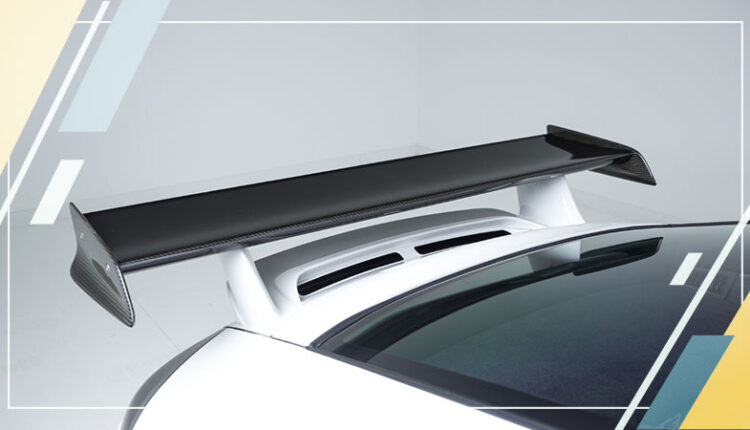Automotive Plastics Exterior Parts: A New Era of Style and Performance
Today, cars with stunning aesthetics and impressive velocities have become a captivating focal point. This remarkable triumph is made achievable through the utilization of automotive plastics exterior parts. From sleek body panels to cutting-edge grilles and robust bumpers, these plastic exterior parts have redefined the possibilities of vehicle aesthetics and performance.
Now, let’s dive in and uncover a dynamic landscape of innovation and sustainability with these recognizable exterior parts.
What are Automotive Plastics Exterior Parts?
Automotive plastics are widely used in the manufacturing of exterior parts for vehicles due to their high performance and lightweight properties. Automotive plastics exterior parts of vehicles include trim, lights, bumpers, hoods, liftgates, and more.
The gradual replacement of metal components with plastic automotive parts has led to a significant reduction in vehicle weight, contributing to improved fuel efficiency and performance. They contribute to reducing emissions, improving safety, and increasing fuel efficiency.
5 Types of Automotive Plastics Used for Making Exterior Parts
Below are the five common types of plastic used in the automotive industry for manufacturing vehicle exterior parts:
1. PP
Polypropylene (PP) is a thermoplastic material used in various automobile applications. Its durability, resistance to heat, chemicals, and impact, and ability to be molded into various shapes make it ideal for car interiors and exteriors. PP’s low weight and cost-effectiveness make it an attractive option for car manufacturers seeking to reduce production costs while maintaining high-quality standards.
2. PVC
Polyvinyl chloride (PVC) is energy-efficient, cost-effective, and environmentally friendly. It is widely used in vehicles for applications such as bodyside moldings, windshield components, interior lining, under-the-hood wiring, car abrasion protection coatings, carpet matting, sealants, and dashboards. PVC prolongs vehicle life by providing wear-resistant coatings and acting as a sealant against humidity.
3. ABS
ABS (Acrylonitrile Butadiene Styrene) is a lightweight, durable material used in vehicles for its impact resistance, dimensional stability, and toughness. It is versatile, easy to mold and shape into various components, and can be customized to meet specific design requirements. ABS can be colored, painted, or coated to match aesthetics and performance requirements.
4. PMMA
Polymethyl methacrylate, or PMMA, is a transparent thermoplastic material used in vehicles for exterior and interior parts like headlamp lenses and instrument panels. Its high transparency, weather resistance, scratch resistance, and easy moldability make it a popular choice for instrument panels, where designers balance functionality with aesthetic appeal.
5. PET
PET is a polyester thermoplastic material used for making laminating glass windows, protecting headlights and tail lights, and creating lightweight, durable vehicle interior parts. Its properties include strength, rigidity, ease of processing, innovation, design, lower production costs, and ease of repair.
Why Are Car Exterior Trim Restorers So Popular?
Car exterior trim restorers have gained popularity due to their wide range of benefits. These exterior auto trim restorers are specially designed to revitalize and restore the appearance of various exterior plastic and vinyl & rubber trim components on a vehicle. These products are formulated to address issues such as fading, oxidation, and general wear and tear that can occur over time. They are intended to bring back the original color, shine, and richness to the trim while also providing protection against UV rays and environmental elements.
Some popular exterior car trim restorers use advanced hybrid polymer technology to seal non-porous surfaces with UV protection, significantly outlasting conventional protectants and trim care products. These restorers are suitable for use on a wide range of exterior plastic, vinyl, and rubber trim, including moldings, bumpers, rearview mirror housings, door handles, and windshield cowlings. They are designed to leave a durable, silky shine and restore the original OEM look of the car trim. In this field, Meguiar’s Ultimate Black Plastic Restorer is known as the best car exterior trim restorer. It is designed to restore all exterior plastic, vinyl, and rubber trims. It utilizes advanced hybrid polymer technology to seal non-porous surfaces with UV protection, providing long-lasting results.
Why Are Automotive Plastics Exterior Parts Important?
Automotive plastics are extensively used in making car exterior parts due to their numerous advantages. These include lightweight design, improved fuel efficiency, enhanced performance, safety benefits, and design flexibility. They are commonly used for exterior car parts like bumpers, doors, fenders, and bonnets, offering sleek finishes and the ability to absorb and redistribute energy during impacts, thus ensuring passenger safety.
The replacement of metal components with plastic vehicle parts not only reduces vehicle weight but also contributes to improved fuel efficiency and performance, allowing for innovative and versatile designs for car exterior parts. For example, the use of plastics in the liftgate of the 2014 Nissan Rogue CUV resulted in a 30% weight reduction compared to steel systems, leading to a 10% improvement in fuel efficiency.
In a Nutshell
Automotive plastics exterior parts have revolutionized the design and functionality of the automotive industry. Their lightweight nature, durability, and versatility have enabled the creation of aerodynamic body panels, stylish grilles, and impact-resistant bumpers. Furthermore, the use of plastic in exterior parts has contributed to improved fuel efficiency, reduced vehicle weight, and enhanced safety. As technology advances, automotive plastics are set to play a pivotal role in shaping the future of vehicle exterior design and performance.


